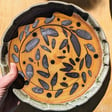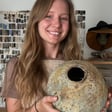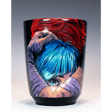
The Secret To Balancing Motherhood and Being a Fulltime Potter with Shawna Pincus
In this episode of 'Shaping Your Pottery,' host Nic Torres interviews Shawna Pincus a potter who shares her journey from initially pursuing photography to falling in love with pottery. Shawna discusses how being a mother has influenced her growth as an artist and provides insights into balancing motherhood with her full-time pottery career. She also talks about her unique methods for combining wheel throwing and hand-building techniques, how she incorporates illustrations into her pottery, and the importance of experimenting and finding one's unique voice in the art world. Shawna offers practical advice for up-and-coming potters and emphasizes the value of jumping in and continually pushing the boundaries of one's craft. You can learn more about Shawna by checking out her instagram https://www.instagram.com/pinkkisspottery/
Take this Free Quiz to see how close you are to finding your pottery voice click here to take the quiz shapingyourpottery.com/quiz
Join the Clay Games Community to connect with like minded potters and compete in monthly pottery competitions Join Here
00:00 Introduction and Quiz Announcement 00:24 Guest Introduction and Pottery Philosophy 00:50 Journey into Pottery 02:34 Balancing Motherhood and Artistry 06:37 Pottery Techniques and Inspirations 14:45 Business Side of Pottery 20:37 Discovering Your Unique Voice 25:06 Final Thoughts and Farewell



